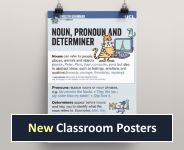Explanation
A clause which is subordinate to some other part of the same sentence is a subordinate clause; for example, in The apple that I ate was sour, the clause that I ate is subordinate to apple (which it modifies).
- That’s the street where Ben lives. [relative clause; modifies street]
- He watched her as she disappeared. [Adverbial; modifies watched]
- What you said was very nice. [acts as Subject of was]
- She noticed an hour had passed. [acts as Object of noticed]
Subordinate clauses contrast with coordinate clauses as in It was sour but looked very tasty. (Contrast: main clause)
However, clauses that are directly quoted as direct speech are not subordinate clauses.
- Not subordinate: He shouted, “Look out!”
A subordinate clause does not function as a sentence on its own but functions instead as part of a larger clause. For example, in the sentence I believe that we will have a hot summer the clause that we will have a hot summer is a subordinate clause functioning as part of the larger main clause: it is the Direct Object of the verb believe.
Englicious contains many resources for English language in schools, but the vast majority of them require you to register and log in first. For more information, see What is Englicious?

